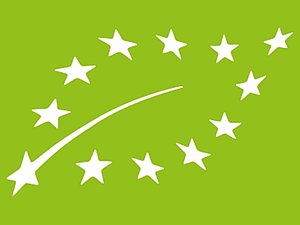Organic products
Topic description
General

Organic farming is part of the wider supply chain, which, apart from agricultural production, also includes processing, distribution and sale of foodstuffs.
On import, an agricultural product or foodstuff may be labelled as “organic” if, prior to export from a third country, a certificate of inspection for imports of organic or in-conversion products into the EU (hereafter referred to as certificate of inspection) is entered in TRACES and shall pass all necessary verifications by the competent authorities before release for free circulation. Every importer in Slovenia must be registered with the Administration for Food Safety, Veterinary and Plant Protection (hereafter referred to as the AFSVSPP) and controlled and certified by the Slovenian supervision and certification organisation.
The Financial Administration of the Republic of Slovenia (hereafter referred to as the FARS) is in Slovenia responsible for import control of organic products. We check the conformity of the consignment with the accompanying documents and, if necessary, perform a physical control of the consignment. We also enter all inspection results and endorse the certificate of inspection with a qualified electronic seal in TRACES in accordance with our own findings or findings of the competent inspectors of the AFSVSPP. Where a consignment of organic products is split into different batches before release for free circulation, the inspectors of FARS must first endorse the certificate of inspection in TRACES. An extract of the certificate of inspection (in TRACES) must be produced for each batch and endorse by the competent authority where the batch is released for free circulation.
Organic products falling under increased official controls by the competent inspectors of the AFSVSPP must be inspected on first entry into the Union at a border inspection post (BIP) in Slovenia (BIP Luka Koper and BIP Letališče Brnik) or in other Member States of the Union, where the certificate of inspection must also be endorsed. Organic products checked on BIP and all other organic products can be released for free circulation on Points of release for free circulation registered in TRACES. In Slovenia, these are a customs clearance departments within certain financial offices.
If the certificate of inspection has not been issued in time or is not in TRACES, or where irregularities in the consignment or documents are detected, the FARS shall inform the competent regional office of the AFSVSPP, which shall act in accordance with their competences.
You can get more information on the import of organic products and verification of the certificate of inspection from the General Financial Office of the Financial Administration of the Republic of Slovenia (gfu.fu(at)gov.si) and more information on registration and official controls form the AFSVSPP (gp.uvhvvr(at)gov.si).
Legislation
EU legislation
Regulations
- Regulation (EU) 2017/625 of the European Parliament and of the Council of 15 March 2017 on official controls and other official activities performed to ensure the application of food and feed law, rules on animal health and welfare, plant health and plant protection products, and amending Regulations (EC) No 999/2001, (EC) No 396/2005, (EC) No 1069/2009, (EC) No 1107/2009, (EU) No 1151/2012, (EU) No 652/2014, (EU) 2016/429 and (EU) 2016/2031 of the European Parliament and of the Council, Council Regulations (EC) No 1/2005 and (EC) No 1099/2009 and Council Directives 98/58/EC, 1999/74/EC, 2007/43/EC, 2008/119/EC and 2008/120/EC and repealing Regulations (EC) No 854/2004 and (EC) No 882/2004 of the European Parliament and of the Council, Council Directives 89/608/EEC, 89/662/EEC, 90/425/EEC, 91/496/EEC, 96/23/EC, 96/93/EC and 97/78/EC and Council Decisions 92/438/EEC and implementing regulations
- Regulation (EU) 2018/848 of the European Parliament and of the Council of 30 May 2018 on organic production and labelling of organic products and repealing Council Regulation (EC) No 834/2007
- Commission Delegated Regulation (EU) 2021/2306 of 21 October 2021 supplementing Regulation (EU) 2018/848 of the European Parliament and of the Council with rules on official controls on consignments of organic and in-conversion products intended for import into the Union and on the certificate of inspection
- Commission Delegated Regulation (EU) 2021/2305 of 21 October 2021 supplementing Regulation (EU) 2017/625 of the European Parliament and of the Council with rules on the cases and conditions under which organic and in-conversion products are exempted from official controls at border control posts and the place of official controls and amending Commission Delegated Regulations (EU) 2019/2123 and (EU) 2019/2124
- Commission Implementing Regulation (EU) 2021/2307 of 21 October 2021 laying down rules on the documents and notifications required for organic and in-conversion products intended for import into the Union
- Commission Implementing Regulation (EU) 2021/279 of 22 February 2021 laying down detailed rules for the implementation of Regulation (EU) 2018/848 of the European Parliament and of the Council on control and other measures to ensure the traceability and compliance of organic production and labelling of organic products
- Commission Implementing Regulation (EU) 2021/1378 of 19 August 2021 laying down certain rules concerning the certificate issued to operators, groups of operators and exporters in third countries involved in the imports of organic and in-conversion products into the Union and establishing the list of recognised control authorities and control bodies in accordance with Regulation (EU) 2018/848 of the European Parliament and of the Council
National legislation
Acts
Regulations
- Regulation on organic production and processing of agricultural products and foodstuffs SI
- Regulation on the implementation of the Regulation (EU) on official controls and other official activities in the field of food, feed, animal health and welfare and plant health and plant protection products SI



